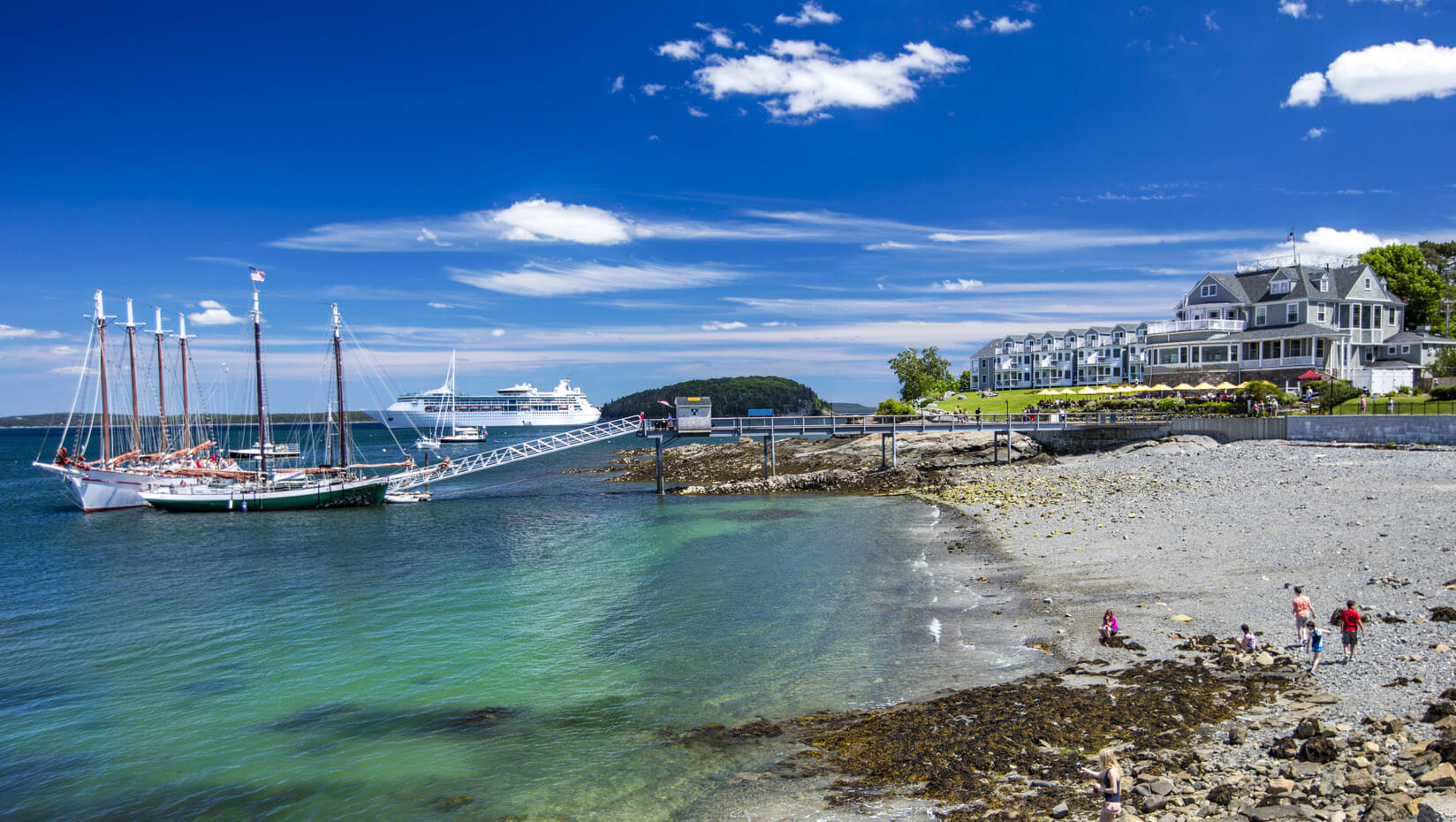
UMaine economists research economic fallout from COVID-19 in Maine’s hospitality industry
Two University of Maine economists predict that earnings for Maine restaurants and lodgings will drop by more than one-third from the previous year as a result of the COVID-19 pandemic.
Todd Gabe, a professor of economics, and Andrew Crawley, an assistant professor of regional economic development, conducted a study exploring the economic fallout from the outbreak in the hospitality industry, which includes restaurants, hotels, motels, inns and other lodging establishments. They shared their findings, which rely in part on data from Maine Revenue Services and the Opportunity Insights project, with the trade group HospitalityMaine.
“We’ve been studying Maine’s hospitality industry for years, so when we were asked to do this update (by HospitalityMaine), we knew we had the data and expertise,” Gabe said. “It was a natural thing for us to try to figure out what’s happening.”
Gabe and Crawley predict that 2020 hospitality sales will reach between $2.5 and $2.8 billion by the end of the year, a 35 to 42 percent drop from last year, when sales were $4.3 billion. The forecast relies on actual data from January to April and estimated earnings for May through December, which are based on a variety of scenarios about how the rest of the year will play out.
Daily consumer spending in hospitality fell 66 percent between January and early April, 50 percent between January and early May and 33 percent between January and early June, according to the report. Hospitality sales gradually rose between April and June, but remain below a typical year, Gabe says.
Maine hospitality sales fell by 35 percent between March 2019 and 2020, and by 63 percent between April 2019 and 2020. One the other hand, sales were up by 12 percent in January and February when compared to last year.
“Certainly, the large impact on hospitality sales (from COVID-19) started at the beginning of the pandemic,” Gabe said. “If you took January and February as indicators, this year was supposed to be a good year starting out for hospitality.”
Restaurant activity generates about 70 percent of taxable sales in the Maine hospitality industry, Gabe says, and the pandemic affects them and lodging operators in different ways.
“You hear hotel operators say ‘Our reservations are down.’ We know motels and hotels are getting hit harder than restaurants,” he says, adding that some eateries have adapted by offering takeout and curbside pick-up services, as well as outdoor seating.
HospitalityMaine previously asked Crawley and Gabe to conduct studies about the economic contribution of Maine’s hospitality industry to the state economy last year and in 2018. Jumping off from their previous work, the UMaine economists estimated how much COVID-19 will affect the industry’s contribution this year.
The Maine hospitality industry is expected to generate $2.65 billion in direct revenue, 33,085 full- and part-time jobs in direct employment and $1 billion in labor income for workers, according to the report. The direct revenue should spur a statewide economic contribution — including multiplier effects — of $4.6 billion in revenue, 46,196 full- and part-time jobs and $1.6 billion in labor income. That contribution falls short of 2018 and 2017 by 33 and 29 percent respectively.
Gabe says hospitality creates more than 10 percent of jobs in some counties, and the economic loss as a result of COVID-19 could be significant in those areas.
“It’ll be a bigger hit in coastal areas,” he says.
The two UMaine economists plan to update their findings as new data becomes available, with a new report expected to be released in August.
Contact: Marcus Wolf, marcus.wolf@maine.edu
